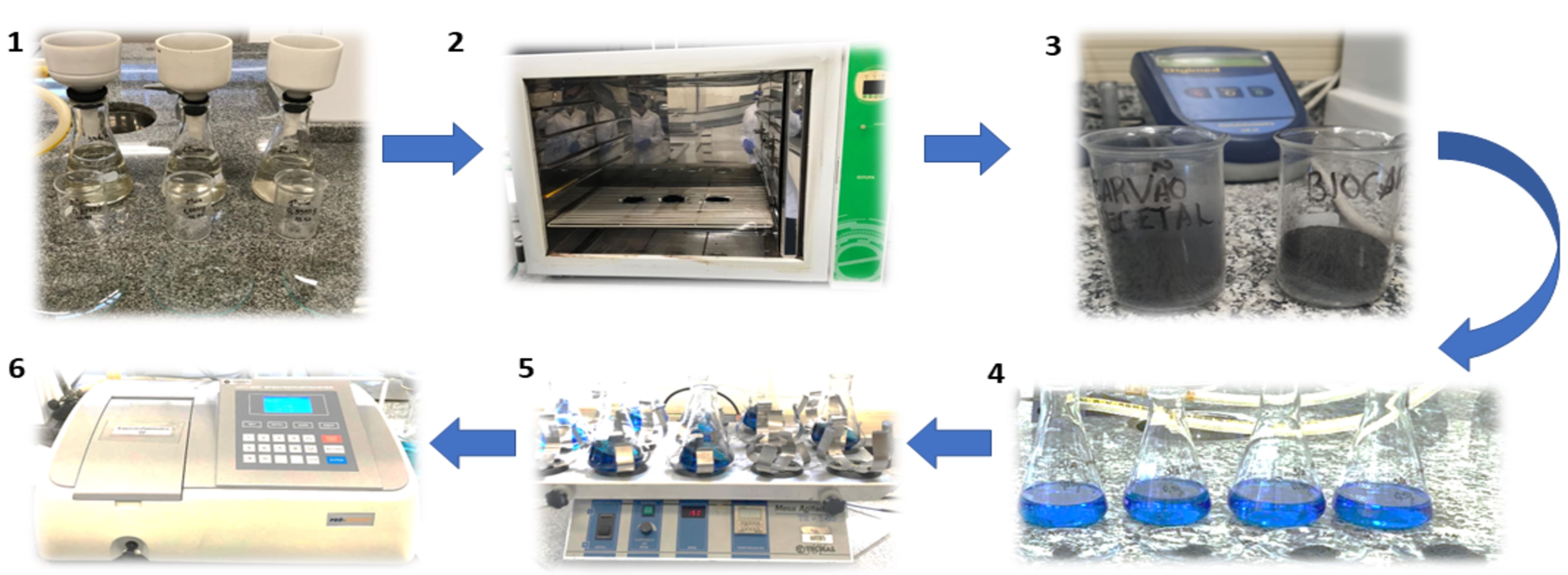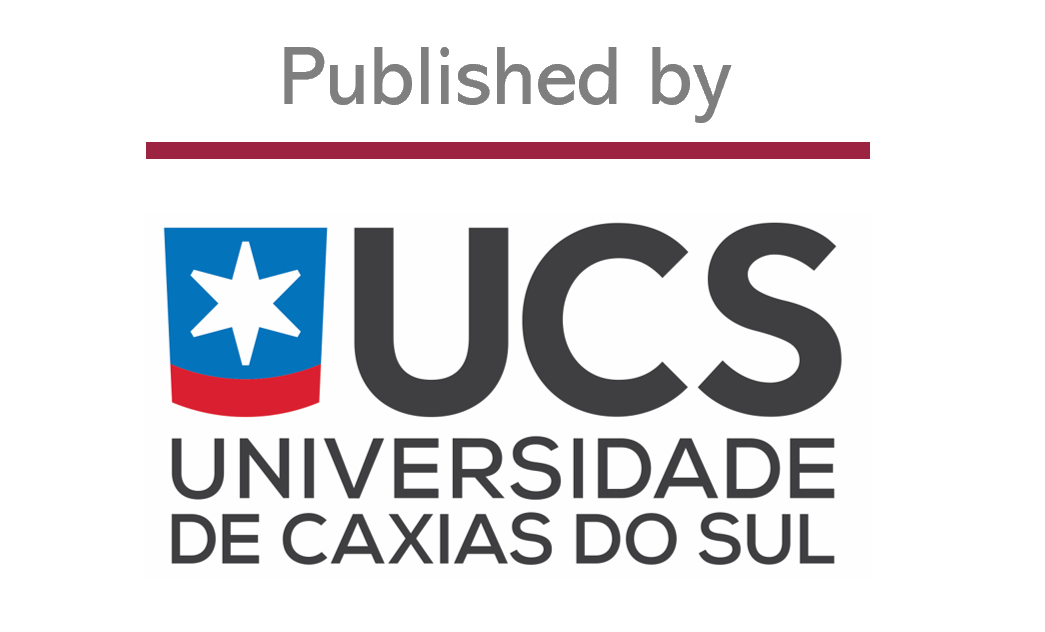Assessment of the adsorption capacity of biochar samples obtained from agricultural biomasses
DOI:
https://doi.org/10.18226/23185279.e241304Keywords:
rice husk, coconut fiber, removal, methylene blue, contaminantsAbstract
The study consists of adsorption tests on two samples of biochar, obtained from rice husk and coconut fiber biochar biomass, as well as a sample of charcarbon, both prepared under different conditions: macerated and non-macerated; impregnation with and without HCl and H3PO4; and washing or not with deionized water after impregnation. The test was performed in duplicate, for 30 min, with masses of 0.5 g; 0.3 g; 0.1 g; and 0.05 g, and an initial methylene blue concentration of 0.01 g∙L-1. The study was carried out with the objective of identifying, in the analyzed samples, the material with the greatest adsorption capacity of methylene blue dye, comparing the data with commercial activated carbon. The results identified removal above 70 % in both types of biochars, suggesting the feasibility of application as an adsorbent material to remove organic contaminants. The sample that most closely resembled the removal percentage of commercial activated carbon (98.84 %) was that of biochar obtained from coconut fibers, with 91.71 %. Thus, the research showed promise in studying the application and valorization of biochars, produced from agro-industrial waste, in adsorption processes.

Downloads
Published
How to Cite
Issue
Section
License

This work is licensed under a Creative Commons Attribution 4.0 International License.
Declaração de originalidade e cessão de direitos autorais
Declaro que o presente artigo é original, não está sendo tendo sido submetido à publicação em qualquer outro periódico nacional ou internacional durante o processo de revisão. Através deste instrumento, em meu nome e em nome dos demais co-autores, porventura existentes, cedo os direitos autorais do referido artigo à revista SCIENTIA CUM INDUSTRIA. Contudo, a reprodução total ou parcial impressa ou eletrônica pode ser feita desde que o autor comunique oficialmente à revista. Declaro estar ciente de que a não observância deste compromisso submeterá o infrator a sanções e penas previstas na Lei de Proteção de Direitos Autorias. Declaro estar ciente de que a não observância deste compromisso submeterá o infrator a sanções e penas previstas na Lei de Proteção de Direitos Autorias (Nº9610, de 19/02/1998).




